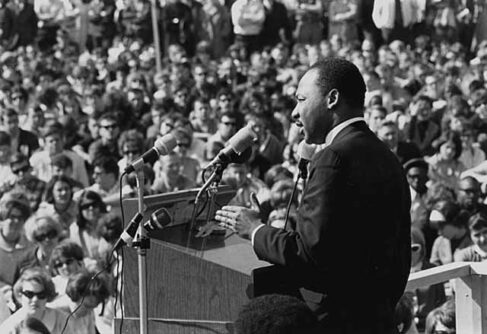The president’s message: I don’t want to talk with those with differing views, and I will avoid doing so to the extent possible -- and I certainly will not bother discussing the country’s most pressing issues with Congress.
Translation of the president’s message: I don’t want to engage in politics -- at least as politics was classically understood.
Discourse, negotiation, debate -- in short, conversation -- this is the essence of political life.
Our word “politics” comes from the Greek word polis, the name for the sovereign city-states that were the basic political unit in the Greek world. A polis would have, at its heart, a square that served as a marketplace and the spot for public assemblies and gatherings. The Greeks judged that the population of a polis had to be limited to 2,000 citizens -- any greater number and it would be impossible to assemble them all at once.
Of course, the Greeks recognized that there were countries of more than 2,000 people -- but these, they believed, were not ruled politically. Aristotle wrote that the proof that Babylon was not a polis was fact that it took three days for some residents to learn that Babylon had been defeated in battle. On Aristotle’s reasoning, if you couldn’t get everyone together to hear a public announcement, to debate a policy, or to hold a council of war, your country wasn’t political -- even if it did have rulers.
Of course, now countries are much greater than 2,000 citizens. But, on both the right and the left, discussion and negotiation are still held essential to true political life.
On the left, for example, Jürgen Habermas’s “discourse ethics” has been especially influential -- in books such as Justification and Application, Habermas argued for the necessity of what he calls “ethical-political” discourse to develop a consensus about norms and policies that concern the good of the entire community.
And, on the right, Michael Oakeshott also argued for the crucial importance of discourse in political life. In essays such as “Political Discourse” and his masterwork “Rationalism in Politics,” Oakeshott argued that political discourse must avoid the trappings of ideology if it is to address public concerns adequately.
Admittedly, Habermas and Oakeshott disagreed on many points about what makes for fully adequate political discourse. But they agreed -- in company with many others of the deepest thinkers about civic life -- about the centrality of discourse to political life. Politics, for these and other political philosophers, requires a conversation of a certain caliber.
So when the president says that he doesn’t want to negotiate with Congress over the debt limit or gun control, he is saying he simply isn’t interested in participating in this central, defining feature of political life: the conversation of the community about public affairs.
Many have said, and quite rightly, that the real debate today is not over the “fiscal cliff” or the “debt ceiling” but over two fundamentally different visions about the role of government in our lives. However, perhaps the most fundamental debate today concerns this: do we want to be a political nation -- one that can have a serious, adult discussion about its challenges?
President Obama is not alone responsible for the seeming inability of America’s leaders to have that serious, adult conversation. But his announcements on Tuesday that he isn’t going to negotiate with Congress over some of the most urgent issues facing the nation suggests that he just doesn’t get that to be a political leader -- rather than just a ruler -- you have to be willing to enter into a conversation.





